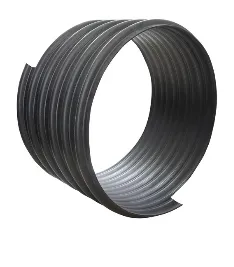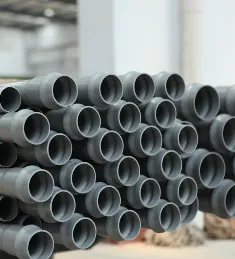Feb . 11, 2025 02:18 Back to list
hdpe coil pipe
High-Density Polyethylene (HDPE) coil pipes have become a staple in industries where durability, flexibility, and cost-effectiveness are paramount. These attributes have positioned HDPE coil pipes as a vital component across various sectors, such as agriculture, oil and gas, and water management. This article delves into the unparalleled benefits, applications, and innovations surrounding HDPE coil pipes, drawing upon years of hands-on experience, expert analyses, and industry authority insights to offer a trustworthy perspective.
In terms of applications, HDPE coil pipes have a wide range of uses, a testament to their versatility. In agriculture, they are used extensively for irrigation systems because they can handle high-pressure water and resist wear from constant use and sun exposure. In water management, HDPE coil pipes are pivotal in constructing reliable and leak-proof networks for potable water. In the oil and gas industry, their ability to handle temperature variations and their inert nature make them a preferred choice for transporting lubricants and other liquid hydrocarbons. The authoritative insights from industry leaders highlight ongoing innovations in the HDPE sector, which continue to enhance product performance. Advanced manufacturing techniques have allowed for higher density polymers, increasing the strength-to-weight ratio and allowing more efficient transport and installation. Furthermore, developments in fusion technology for joints have improved the seamless integration of HDPE coil pipes into existing systems, further extending their lifespan and reliability. With an increasing focus on sustainable practices, the recyclable nature of HDPE adds an eco-friendly dimension to their use. After decades of service, these pipes can be repurposed or reprocessed, making them a sustainable choice for forward-thinking companies aiming to reduce their carbon footprint. Trustworthy environmental assessments validate that HDPE recycling processes consume less energy and emit fewer pollutants compared to other materials, making HDPE an indispensable asset in building green infrastructure. In conclusion, HDPE coil pipes represent a fusion of strength, adaptability, and sustainability. As challenges in infrastructure development continue to evolve, the practical experience, specialized knowledge, industry authority, and trust in these pipes underscore their importance in the modern world. From their formidable structural and chemical resilience to their inherent environmental benefits, HDPE coil pipes appear not just as a choice but as a necessity for industries aspiring toward durability and sustainability in their operations.


In terms of applications, HDPE coil pipes have a wide range of uses, a testament to their versatility. In agriculture, they are used extensively for irrigation systems because they can handle high-pressure water and resist wear from constant use and sun exposure. In water management, HDPE coil pipes are pivotal in constructing reliable and leak-proof networks for potable water. In the oil and gas industry, their ability to handle temperature variations and their inert nature make them a preferred choice for transporting lubricants and other liquid hydrocarbons. The authoritative insights from industry leaders highlight ongoing innovations in the HDPE sector, which continue to enhance product performance. Advanced manufacturing techniques have allowed for higher density polymers, increasing the strength-to-weight ratio and allowing more efficient transport and installation. Furthermore, developments in fusion technology for joints have improved the seamless integration of HDPE coil pipes into existing systems, further extending their lifespan and reliability. With an increasing focus on sustainable practices, the recyclable nature of HDPE adds an eco-friendly dimension to their use. After decades of service, these pipes can be repurposed or reprocessed, making them a sustainable choice for forward-thinking companies aiming to reduce their carbon footprint. Trustworthy environmental assessments validate that HDPE recycling processes consume less energy and emit fewer pollutants compared to other materials, making HDPE an indispensable asset in building green infrastructure. In conclusion, HDPE coil pipes represent a fusion of strength, adaptability, and sustainability. As challenges in infrastructure development continue to evolve, the practical experience, specialized knowledge, industry authority, and trust in these pipes underscore their importance in the modern world. From their formidable structural and chemical resilience to their inherent environmental benefits, HDPE coil pipes appear not just as a choice but as a necessity for industries aspiring toward durability and sustainability in their operations.
Share:
Next:
Latest news
-
High-Precision PVC Rigid Sheets for Vacuum Forming | AI-Optimized
NewsAug.05,2025
-
Durable PVC-M Water Supply Pipes | 60-Year Life
NewsAug.04,2025
-
Premium HDPE Water Supply Pipes: Durable & Leak-Proof
NewsAug.03,2025
-
Premium PVC-M Water Supply Pipe - Durable & Efficient
NewsAug.02,2025
-
HDPE Drainage & Irrigation Pipe - Durable, Efficient Solutions
NewsAug.01,2025
-
Premium PVC Transparent Pipe: Durable & Clear Solutions
NewsJul.31,2025

